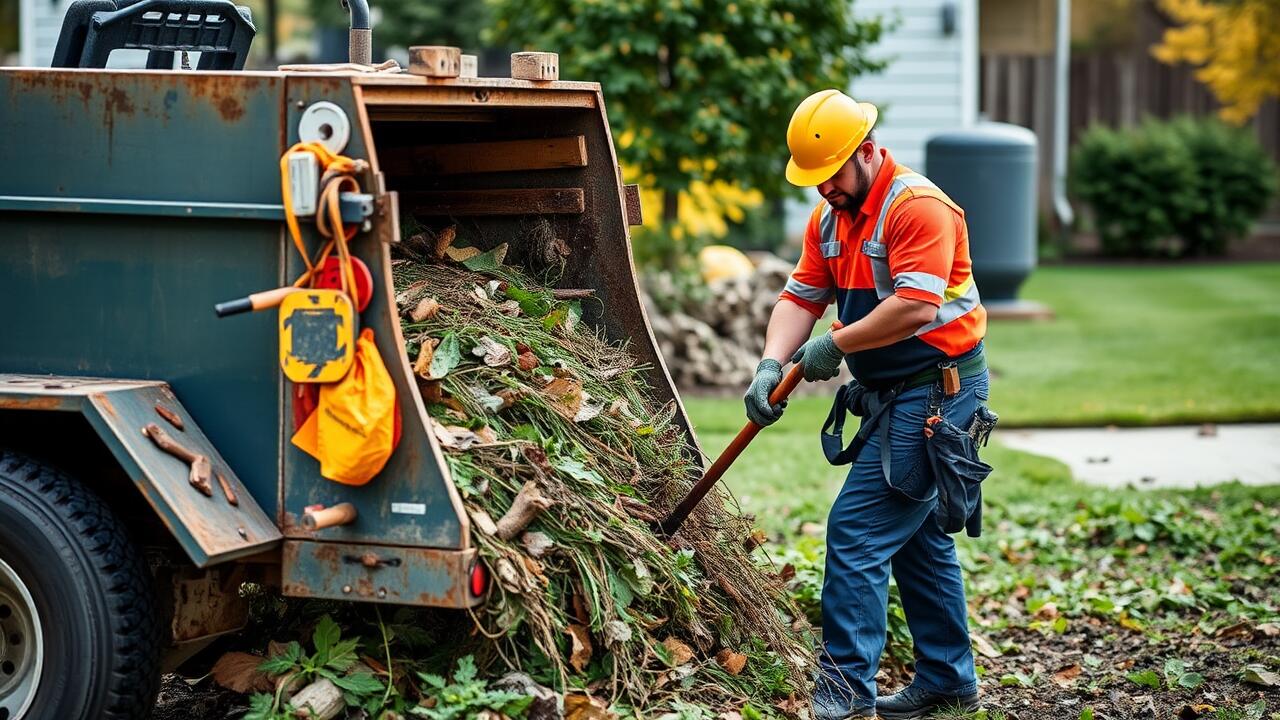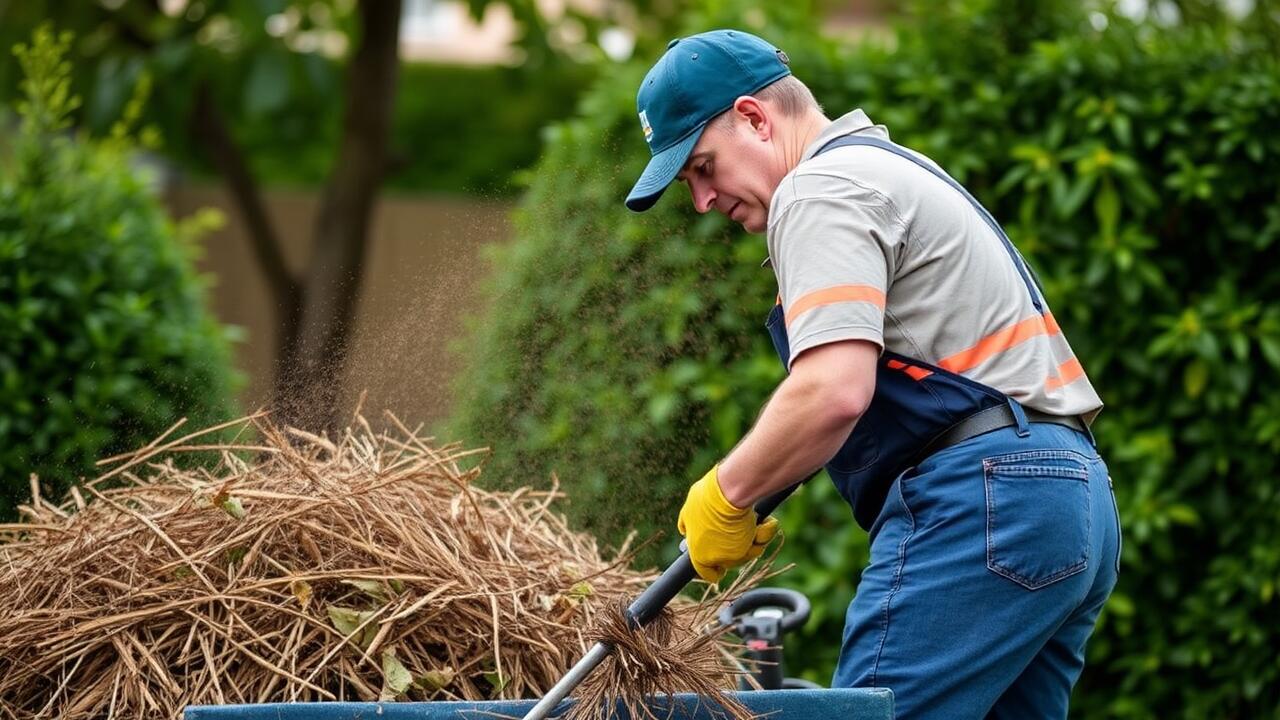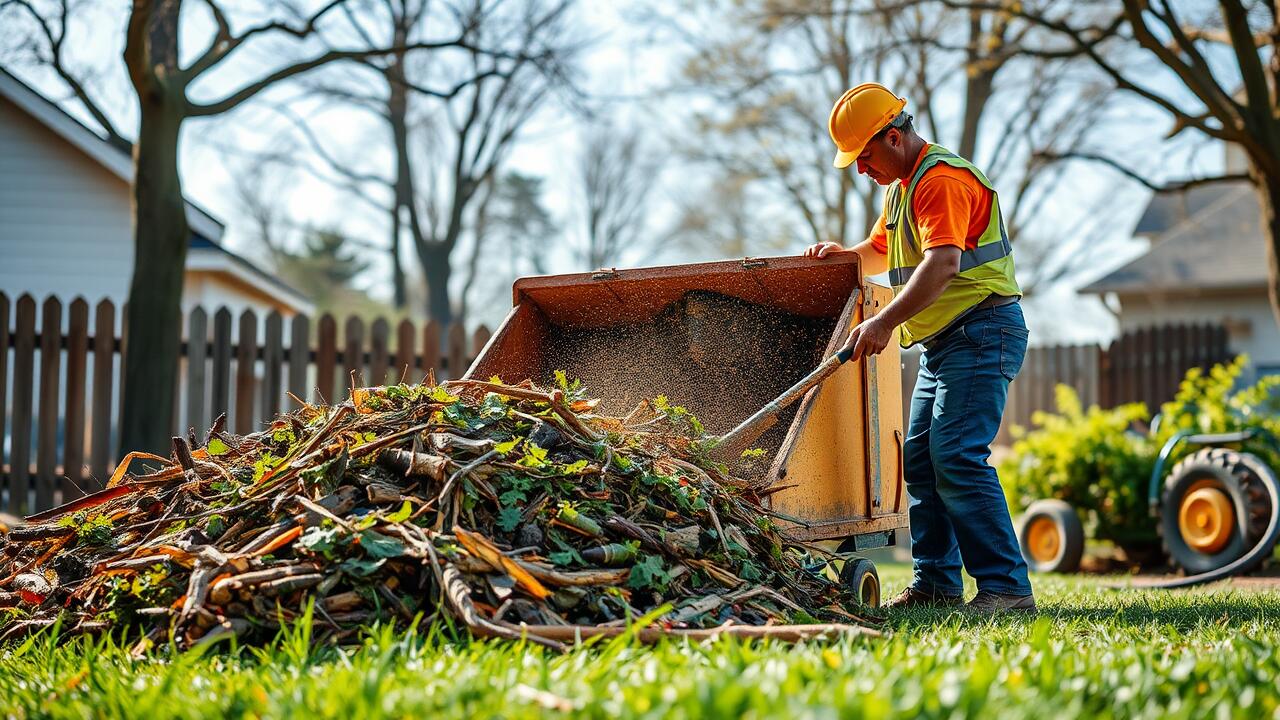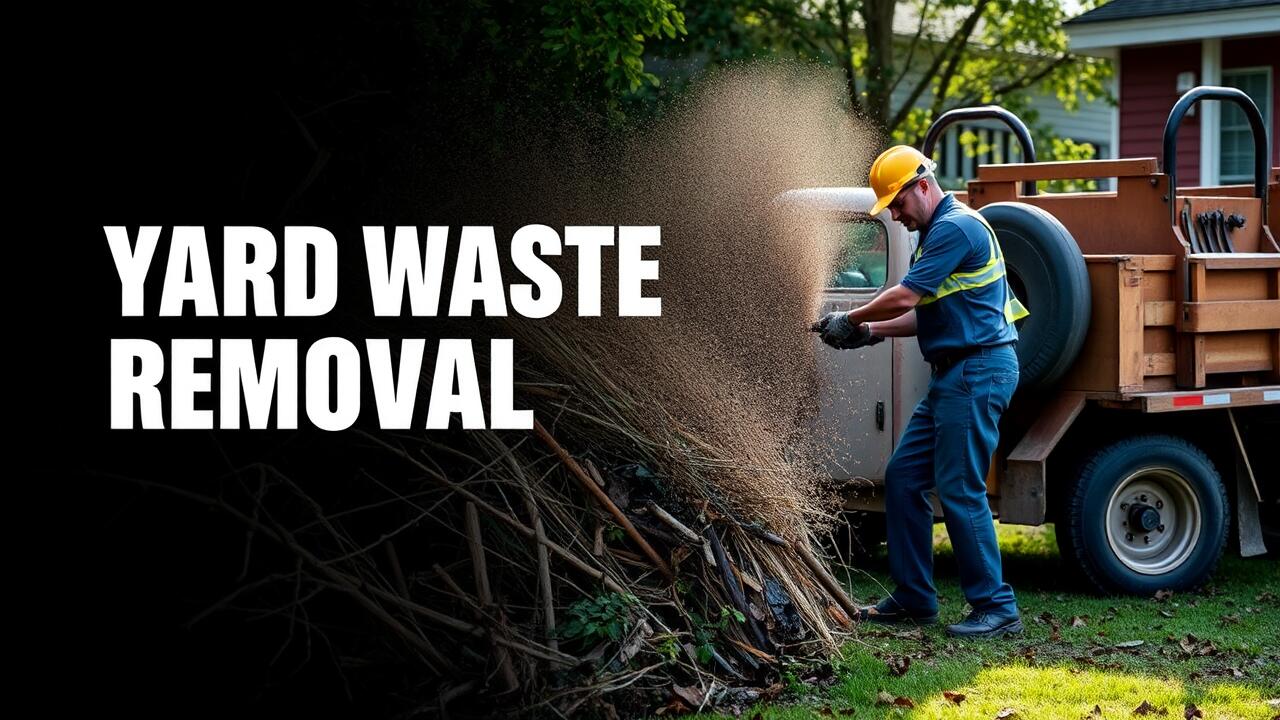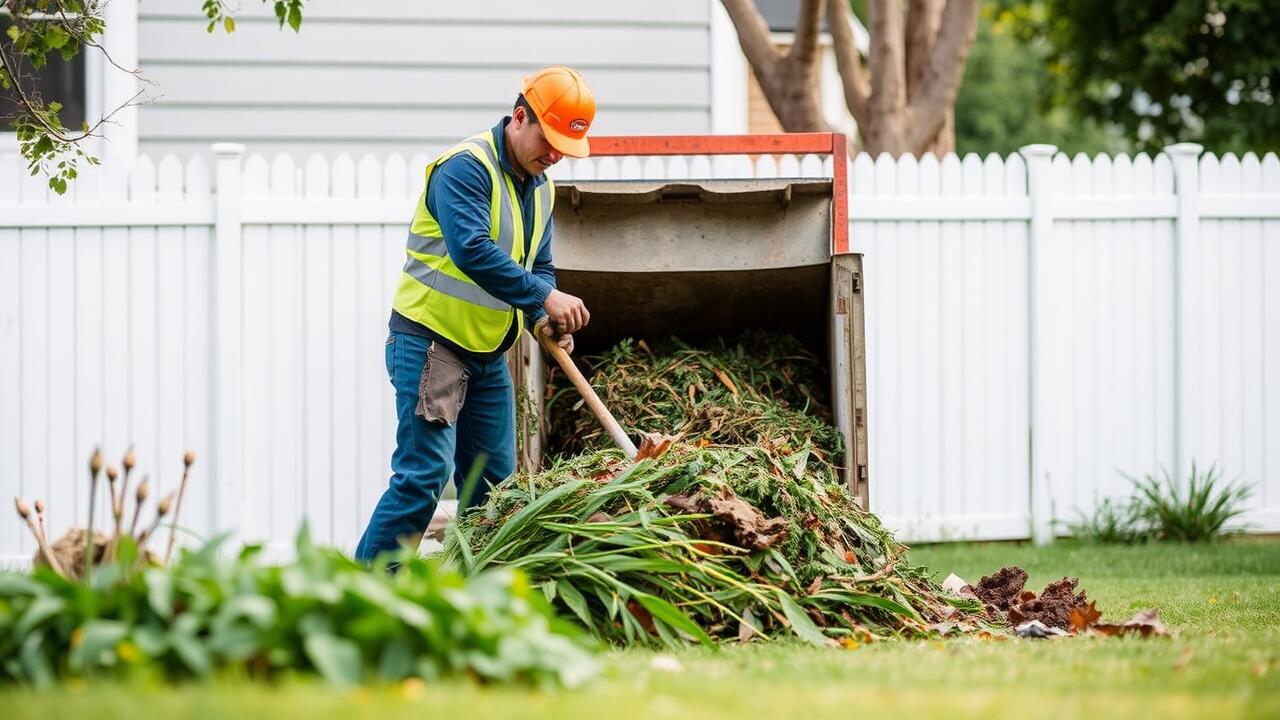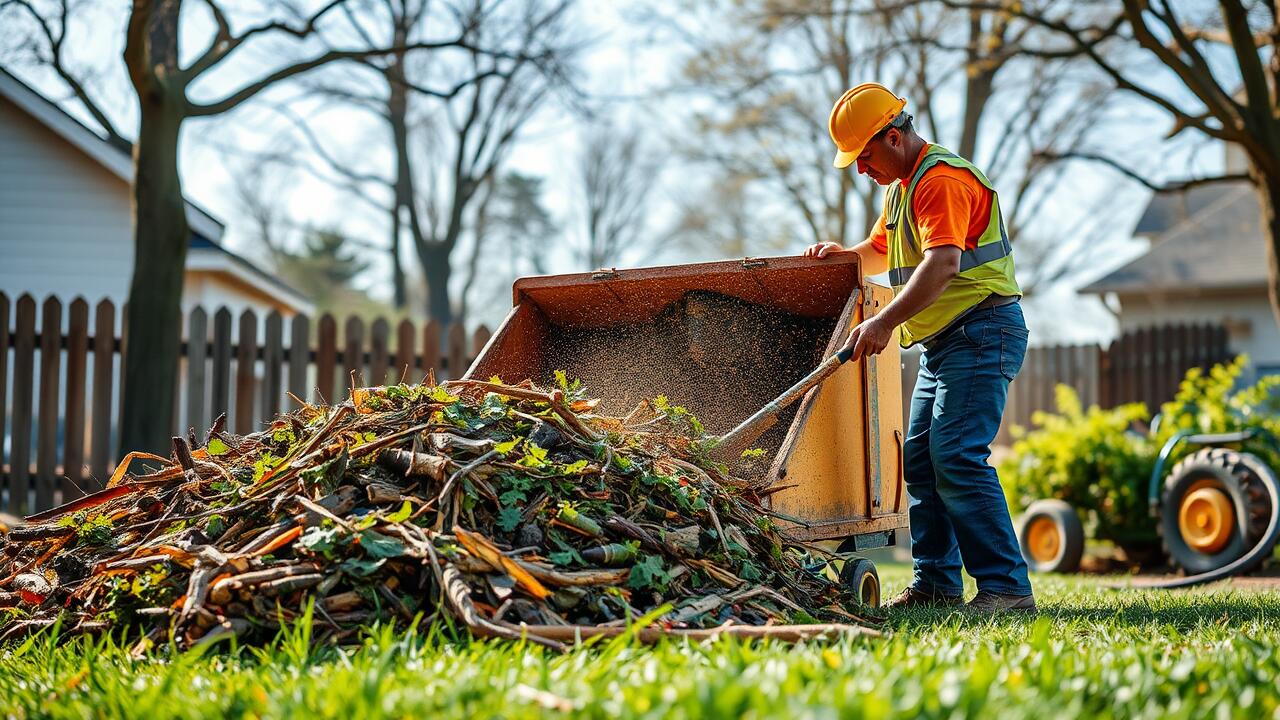
Maintaining Your Compost Bin
Maintaining a compost bin is essential for producing quality compost. Regularly turning the materials helps aerate the mixture, preventing compacting and ensuring that microorganisms have access to oxygen. This can be accomplished using a pitchfork or a compost aerator, which allows for easier manipulation of the contents. Additionally, keeping an eye on moisture levels is vital. If the compost feels too dry, adding water or moist green materials can help revive it. Conversely, if it becomes too wet, adding dry brown materials can balance the moisture.
In areas like Central City, Phoenix, managing yard waste can become a challenge, especially during peak growing seasons. Using local resources for yard waste removal can complement your composting efforts, providing a solution for excess material you may not want to add to your bin. By ensuring that your compost bin is properly maintained through regular turning and moisture control, you create an ideal environment for decomposition and nutrient-rich compost production. This ongoing care enhances the efficiency of your compost system, making it a valuable addition to any garden.
Essential Practices for Aeration and Moisture
Proper aeration and moisture levels are crucial for successful composting. Turning your compost pile regularly introduces oxygen, which encourages the growth of beneficial microorganisms. Using a pitchfork or compost aerator can help mix materials effectively, preventing compaction. Additionally, maintaining an ideal moisture content is essential; the pile should feel damp but not saturated. If the compost becomes too dry, it may slow down decomposition, while excessive moisture can lead to anaerobic conditions.
Monitoring the compost's internal temperature can also indicate whether it's receiving enough airflow. A well-aerated pile usually reaches temperatures between 130°F to 160°F, promoting efficient breakdown of organic matter. In regions like Rio Vista, Phoenix, using local services for yard waste removal can complement your composting efforts. These services can help manage excess materials while ensuring you maintain the right balance of greens and browns in your compost pile.
Troubleshooting Common Compost Issues
Composting can sometimes present challenges that affect the quality and efficiency of your organic material breakdown. One common issue is a foul odor, which usually indicates an imbalance in moisture or aeration. If your compost smells like rotten eggs, it may be too wet or compacted, limiting airflow. To remedy this, turn the pile to introduce oxygen and adjust moisture levels by adding dry materials like leaves or straw. If issues persist, consider reaching out for professional Yard Waste Removal in Deer Valley, Phoenix, as they can provide guidance or take away excess organic waste.
Another frequent problem is the presence of pests, which can disrupt the composting process. While some insects are beneficial, others may indicate that your compost is attracting unwanted visitors due to food scraps that are too exposed or too many soft materials. To keep pests at bay, bury food scraps deeper in the pile and use a balanced mix of green and brown materials. If an infestation continues, turning your compost frequently can help deter pests and maintain a healthy environment for decomposition.
Recognizing and Addressing Odor Problems
Unpleasant odors can indicate that a compost pile is not balancing properly. A strong smell often arises from an imbalance of nitrogen-rich and carbon-rich materials. When the ratio is off, anaerobic bacteria proliferate, leading to foul scents resembling rotten eggs or ammonia. Turning the compost regularly introduces oxygen, which helps aerobic bacteria thrive and can alleviate odor issues. It’s essential to monitor the moisture level as well. Too much moisture can create a soggy environment, resulting in additional odors.
If odor problems persist despite proper aeration and moisture control, consider the types of materials being added to the bin. Certain items, like meat or dairy, can lead to unpleasant smells and attract pests. If excessive odors still occur, adding dry, carbon-rich materials such as shredded leaves or straw can help absorb excess moisture and odors. Maintaining these practices can improve your composting experience, making it less likely that you'll need to turn to services like Yard Waste Removal in Deer Valley, Phoenix. Regular monitoring and adjustment are key to keeping your compost bin healthy and odor-free.
Harvesting Finished Compost
Once your compost has fully broken down, it’s time to begin the harvesting process. Finished compost typically has a dark, crumbly texture and an earthy smell. To determine its readiness, look for the absence of recognizable food scraps and yard debris. It’s best to check the compost bin periodically, using your judgment to decide when it’s time to collect the nutrient-rich material.
If you find that your compost is ready, use a shovel or pitchfork to remove it from the bin. Consider placing it in a separate container or pile to facilitate usage in your garden. If you have more compost than you can use, Yard Waste Removal in Camelback East, Phoenix, can help manage any excess. Having resources to dispose of extra compost material ensures your backyard stays tidy while benefiting the local environment.
Signs That Your Compost Is Ready
When assessing the readiness of your compost, look for specific visual and tactile signals. A rich, dark brown color typically indicates that the organic materials have broken down successfully. The texture should be crumbly and soft, resembling a fine soil. If you notice any recognizable bits of food scraps or yard waste, the compost may need more time to decompose fully.
Another clear sign of finished compost is the earthy smell it emits. A fresh, pleasant odor suggests that the compost is ready to enrich your garden. If you are not prepared to use it right away, consider options like yard waste removal in Phoenix to ensure any excess material is managed properly. Keeping the compost pile aerated and monitoring moisture levels will also enhance the breakdown process, making future harvests even easier.
FAQS
What materials can I compost in my backyard bin?
You can compost a variety of materials, including vegetable scraps, fruit peels, coffee grounds, eggshells, grass clippings, leaves, and small amounts of paper or cardboard. Avoid meat, dairy, and oily foods as they can attract pests.
How often should I turn my compost pile?
It's recommended to turn your compost pile every 3 to 4 weeks. This helps aerate the materials, speeding up the decomposition process and preventing odors.
What should I do if my compost smells bad?
If your compost smells unpleasant, it may be too wet or contain too many nitrogen-rich materials. Add dry materials like leaves or shredded paper, and ensure the pile is well-aerated by turning it regularly.
How long does it take to create finished compost?
The time it takes to produce finished compost can vary, but typically, it can take anywhere from 2 to 6 months, depending on factors like temperature, moisture, and the materials used.
How can I tell when my compost is ready to use?
Your compost is ready when it is dark, crumbly, and has an earthy smell. You should no longer be able to identify any of the original materials.
